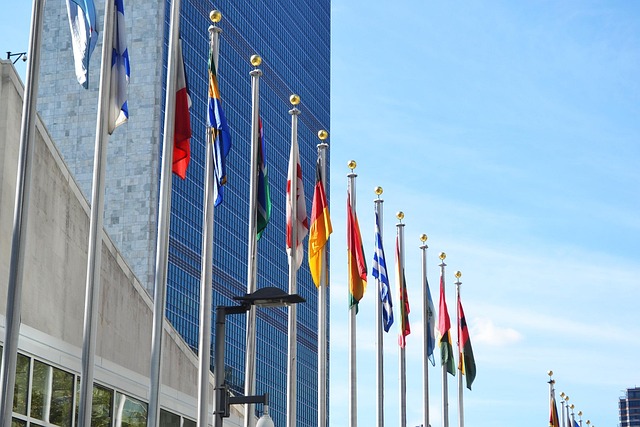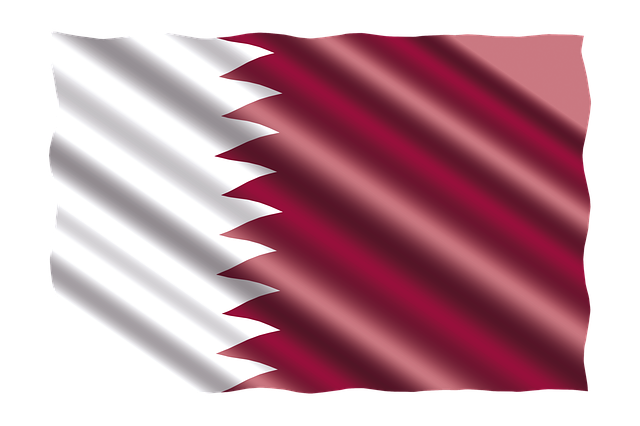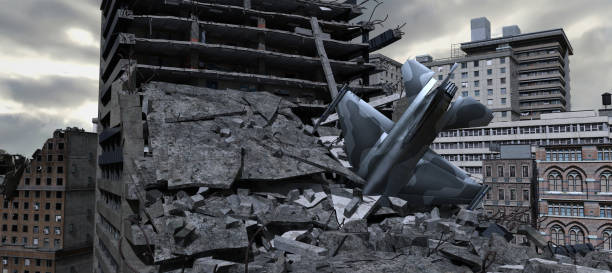1. UN Action in Focus: How the Doha Airstrike Is Forcing Global Powers to Respond
The recent airstrike on Doha has sent shockwaves across the globe, prompting an urgent reassessment of the balance of power in the Middle East. Civilian casualties, the destruction of infrastructure, and the violation of international humanitarian law have reignited calls for accountability. As pressure mounts, it has become the center of international discourse, with member states demanding clarity on what steps will be taken to de-escalate tensions and prevent further violence. The United Nations Security Council has convened emergency sessions, signaling a critical moment where global diplomacy must either rise to the occasion or risk being seen as ineffective in the face of modern warfare. For many, this marks a turning point in how global institutions respond to aggressive military tactics in populated areas.
UN action in this context isn’t just about statements or symbolic condemnation it’s about measurable steps. Sanctions, peacekeeping missions, or investigations into war crimes are all being considered. Yet, the complexity of geopolitical alliances, especially involving veto powers like the United States, makes decisive action difficult. Still, the Doha airstrike has forced the issue onto the global agenda. The urgency foraction reflects a growing consensus that neutrality cannot be an excuse for inaction when peace and human rights are under siege. How the UN responds will shape its credibility in current and future conflicts.
2. Will UN Action Against Israeli Aggression Change the Course of the Conflict?
The possibility of significant action against Israeli aggression following the Doha airstrike has reignited debate about the organization’s role in the Israeli-Palestinian conflict. Over the years, the UN has passed numerous resolutions condemning settlement expansions and the use of excessive force. However, critics argue that these actions often lack enforcement. With the recent escalation involving a devastating strike on Doha, many are asking if this will finally be the moment when UN action carries real consequences. The international community is closely watching whether diplomatic resolutions will translate into tangible changes, such as sanctions or international legal proceedings.
The question of impact remains. For UN action to change the course of the conflict, it must not only be bold but also supported by a united international front. The usual divisions among permanent Security Council members often hinder the enforcement of resolutions. Nonetheless, even symbolic action like a formal condemnation can fuel global movements, encourage humanitarian aid, and apply pressure on regional allies. What’s clear is that inaction or weak response could embolden future aggression. The world now looks to the UN not just as a platform for discussion, but as a mechanism for justice and deterrence. In this light, the current crisis could redefine the very scope in modern conflict zones.
3. Breaking Down UN Action After the Doha Airstrike: What’s Next for Peace?
In the immediate aftermath of the Doha airstrike, the international community turned its eyes to the United Nations, expecting a swift and meaningful response. Breaking down the steps taken so far, UN action has included emergency meetings of the Security Council, debates in the General Assembly, and calls for independent investigations into the legality of the strike. Several member states have urged the Secretary-General to appoint a special envoy to monitor the situation and coordinate humanitarian aid. However, while discussions have been robust, concrete outcomes remain limited, raising questions about the UN’s ability to take decisive action in real time.
Looking ahead, what’s next for peace will largely depend on the consistency and depth of UN action. Beyond words, the world wants accountability whether through sanctions, ceasefire negotiations, or legal proceedings in international courts. Peace cannot be achieved if justice is ignored, and this is where the UN can play a pivotal role. By facilitating dialogues between conflicting parties, supporting grassroots peace-building efforts, and ensuring compliance with international law, the UN has the tools to influence long-term outcomes. However, these tools must be activated with political will and backed by the global community. As the dust settles in Doha, the world waits to see whether UN action will mark a turning point or just another missed opportunity.
4. Global Reactions and UN Action: The Aftermath of the Doha Airstrike
The global reaction to the Doha airstrike was immediate and intense. Nations across Europe, Asia, and Africa condemned the attack, with many calling for an independent investigation. Protests erupted in several capitals, demanding justice for the victims and accountability for those responsible. Amidst this backdrop of outrage and grief, attention quickly turned to the United Nations. UN action became a rallying cry across media platforms, academic circles, and international forums, as people questioned whether the global body would rise to the occasion or once again fall short in the face of crisis.
In the days following the attack, UN action included emergency consultations, press briefings, and resolutions. Yet, critics argue that these actions have done little to address the root causes or prevent further aggression. The contrast between public outrage and the bureaucratic pace of international diplomacy has never been more apparent. However, this widespread global reaction may be the catalyst needed to push for stronger UN involvement. Calls for international observers, humanitarian corridors, and ceasefire enforcement have gained momentum. As global citizens demand more than just statements, the UN faces a pivotal moment: either act decisively or risk fading into irrelevance in one of the most critical conflicts of our time.
5. UN Action or Inaction? The World Responds to Israeli Strikes on Doha
The aftermath of the Israeli airstrike on Doha has brought renewed scrutiny to the effectiveness of the United Nations. Critics and supporters alike are engaged in a fierce debate over whether current UN action is adequate, or if the organization is once again failing to meet its charter obligations. While the Security Council has held emergency meetings and the Secretary-General has issued statements condemning the attack, many argue that such measures fall short of what is needed to deter further violence. The lingering question remains: is this UN action, or just political theater?
For many around the world, especially those directly affected by the strike, this debate is not academic—it’s a matter of life and death. Inaction can embolden further aggression, while meaningful UN action has the potential to save lives and pave the way for long-term stability. The UN’s ability to respond effectively will determine its future relevance in conflict resolution. As the world responds to the unfolding crisis in Doha, the pressure is on for the UN to move beyond symbolic gestures and demonstrate that it can enforce peace and accountability, even in the face of powerful member states. Otherwise, the perception of UN inaction may solidify, weakening its influence on the global stage.
6. UN Action Against Israel: Symbolic Gesture or Real Change?
As the world processes the devastation caused by the Israeli strike on Doha, attention has focused on whether UN action will lead to tangible change or remain a symbolic gesture. Resolutions, emergency debates, and calls for ceasefires are familiar tools in the UN’s arsenal, but history shows that these often fail to lead to enforcement, especially when powerful nations are involved. Many observers argue that unless this moment prompts a significant policy shift such as sanctions or international legal action UN action will be seen as more of the same: a diplomatic formality without consequence.
Yet, this time could be different. The scale of destruction and global outrage has created unprecedented pressure on the United Nations to act decisively. Some member states are pushing for more aggressive measures, including the suspension of military aid and the implementation of no-fly zones. Civil society groups are also mobilizing to ensure that UN action does not end with empty rhetoric. If the UN can harness this momentum, it may be able to push for real accountability and help chart a path toward lasting peace. The stakes are high, and whether this moment results in real change depends entirely on the depth and follow-through of UN action in the coming weeks.
7. The Role of UN Action in Preventing Further Aggression in the Middle East
The Middle East has long been a hotspot for conflict, with numerous actors and competing interests complicating peace efforts. In this volatile environment, UN action plays a critical role in preventing further aggression and maintaining regional stability. The devastating Doha airstrike has once again underscored the urgent need for a coordinated international response. Through peacekeeping missions, diplomatic mediation, and sanctions, the United Nations has the capacity to influence the behavior of conflicting parties. However, the effectiveness of UN action hinges on the willingness of member states to cooperate and uphold international law.
UN action in the Middle East serves not only as a deterrent but also as a mechanism to protect civilians and foster dialogue. After the Doha airstrike, there is growing recognition that piecemeal or reactive measures are insufficient. A comprehensive approach involving humanitarian assistance, conflict resolution initiatives, and robust monitoring can help reduce the risk of further military escalations. The United Nations’ unique position allows it to bring together diverse stakeholders and propose frameworks for sustainable peace. However, without strong international backing, UN action risks becoming ineffective, perpetuating cycles of violence rather than ending them.
8. Doha Airstrike Fallout: What UN Action Means for Civilian Protection
The fallout from the Doha airstrike has brought the issue of civilian protection to the forefront of global attention. UN action is critical in ensuring that innocent lives are shielded from the horrors of war, especially in densely populated areas. International humanitarian law mandates the protection of civilians, and the United Nations is tasked with upholding these principles through monitoring, reporting, and, if necessary, intervention. The Doha airstrike’s high civilian toll has sparked urgent calls for the UN to strengthen its mechanisms for civilian safety and hold perpetrators accountable.
Beyond condemnation, UN action involves practical steps such as deploying peacekeepers, establishing humanitarian corridors, and facilitating access to medical and food supplies. The organization’s capacity to mobilize resources and coordinate international aid is unparalleled. Furthermore, the UN can pressure parties to the conflict to adhere to ceasefires and engage in dialogue, which is essential for minimizing harm to civilians. The Doha tragedy is a stark reminder that UN action must prioritize human lives and dignity to restore trust in global peacekeeping efforts and prevent future tragedies.
9. Is UN Action Enough? Analyzing Its Impact on Israeli-Palestinian Tensions
The Israeli-Palestinian conflict remains one of the most enduring and complex geopolitical challenges of our time. Following the Doha airstrike, questions about the adequacy of UN action have resurfaced with renewed urgency. While the UN has historically issued resolutions condemning violence and calling for peaceful solutions, critics argue that these have done little to alter realities on the ground. Analyzing the impact of UN action involves examining whether its interventions are strong enough to influence the behavior of both Israeli and Palestinian authorities and whether it can facilitate meaningful negotiations.
Despite the limitations, UN action has contributed to keeping international attention focused on the conflict and provided platforms for dialogue. It has also supported humanitarian efforts in Palestinian territories and helped document human rights abuses. However, the deep-rooted political and territorial disputes require more than just symbolic UN actions. For the organization to make a significant difference, it must couple diplomatic pressure with enforceable measures. The Doha airstrike is a critical moment to evaluate if the current framework of UN action can be reformed to better serve peace and justice in the region or if a new approach is needed.
10. UN Action Explained: Sanctions, Resolutions, and the Path to Peace
Understanding the scope of UN action is essential to grasp how the international community attempts to manage conflicts like the aftermath of the Doha airstrike. UN action typically involves several tools: resolutions that articulate the global community’s stance, sanctions aimed at deterring aggressive behavior, and peacekeeping missions to maintain stability on the ground. Each of these measures serves a specific purpose in the broader goal of achieving peace. Resolutions express the collective will, while sanctions put economic or political pressure on offending parties. Peacekeepers provide a physical presence to prevent further violence and protect civilians.
The path to peace through UN action is rarely straightforward. For example, resolutions condemning the Doha airstrike must be supported by member states to have teeth, and sanctions require consensus to be effective. Moreover, peacekeeping operations depend on the willingness of conflicting parties to cooperate. Despite these challenges, the combination of diplomatic, economic, and humanitarian strategies embodied in UN action has the potential to gradually reduce hostilities and build conditions for negotiations. Understanding these mechanisms helps clarify the potential and limitations of the UN as it navigates the crisis sparked by the recent airstrike.
11. UN Action Sparks Global Debate After Israel’s Strike on Doha
The Israeli strike on Doha has ignited a worldwide debate about the role and effectiveness of the United Nations in conflict resolution. UN action, or perceived lack thereof, has become a focal point in media, political discourse, and public opinion. Some argue that the UN is constrained by political interests and power imbalances within its Security Council, while others believe that the organization is doing all it can within its mandate. This debate highlights the tension between the ideals of global governance and the realpolitik of international relations.
In the aftermath of the strike, calls for more transparent and decisive UN action have grown louder. Critics emphasize the need for reforms that would allow the UN to respond more swiftly and effectively to violations of international law. Meanwhile, supporters contend that the UN provides an indispensable forum for dialogue and conflict prevention. The Doha airstrike serves as a case study illustrating both the strengths and weaknesses of UN action. As this debate continues, it shapes public expectations and pressures member states to either strengthen the UN or consider alternative pathways for international peacekeeping and justice.
12. How UN Action After the Doha Attack Could Reshape International Law
The implications of UN action following the Doha airstrike extend beyond immediate conflict management they have the potential to reshape international law. When the UN responds to such incidents, it often sets precedents regarding the interpretation and enforcement of humanitarian and human rights laws. Strong UN action, including investigations and potential prosecutions, can reinforce norms against indiscriminate attacks and strengthen the international legal framework designed to protect civilians in conflict zones.
Conversely, weak or inconsistent UN action risks undermining the credibility of international law and emboldening actors to disregard established rules. The Doha airstrike presents an opportunity for the UN to assert the primacy of international law through its actions. By holding violators accountable and pushing for reforms that enhance compliance and enforcement, the UN can influence how future conflicts are managed. This not only benefits the immediate victims but also contributes to a more stable and just international order. The choices made now will resonate far beyond the borders of Doha, shaping the future of global peace and security.




